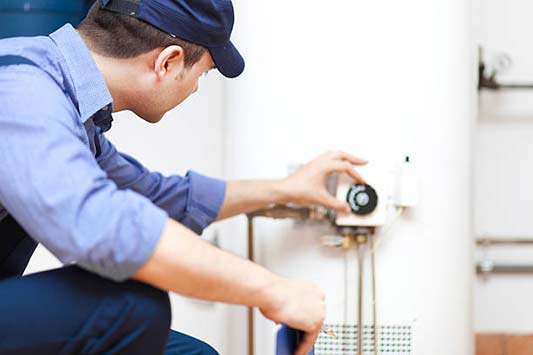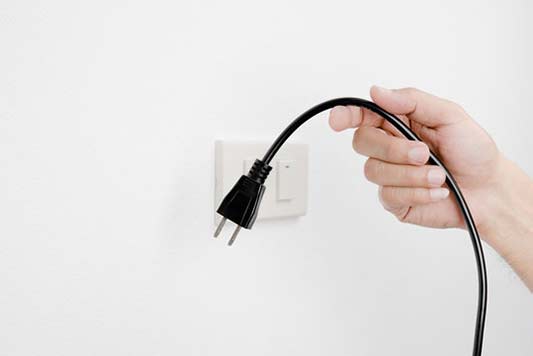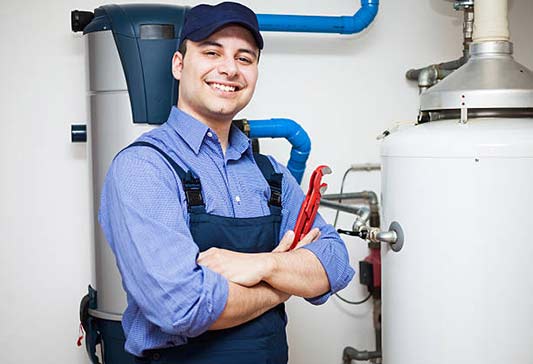Replacing a water heater can be a daunting task for homeowners, but with the right knowledge and expert guidance, the process can be smooth and efficient. In a city like Chicago, where extreme winters demand a reliable and efficient water heating system, it is essential to understand the best practices for water heater replacement. With the help of industry experts, we have compiled a comprehensive guide to navigate through the process seamlessly and ensure a long-lasting and trouble-free water heating system in your Chicago home.
Understanding the Importance of Water Heater Replacement
A water heater is a crucial component of any household, providing hot water for various tasks such as bathing, washing dishes, and laundry. Over time, water heaters experience wear and tear, leading to decreased efficiency and potential malfunctions. Additionally, older water heaters may not meet the latest energy efficiency standards, causing increased energy consumption and higher utility bills.
Replacing a water heater at the right time not only guarantees a reliable supply of hot water but also provides several benefits:
- Improved Energy Efficiency: Newer models of water heaters are designed to meet higher energy efficiency standards, ultimately reducing energy consumption and saving money on utility bills.
- Enhanced Performance: A new water heater ensures optimal performance, meaning faster heating and a more consistent supply of hot water for your daily needs.
- Lower Maintenance Costs: Older water heaters may require frequent repairs, resulting in higher maintenance costs. By replacing it with a newer model, you can reduce the need for repairs and associated expenses.
- Extended Lifespan: Timely replacement of a water heater can prevent major breakdowns and significantly extend the overall lifespan of the system.
Determining When to Replace Your Water Heater
While knowing when to replace your water heater is important, it can be challenging for homeowners to identify the right time. However, there are some key indicators that can help you make an informed decision:
- Age of the Water Heater: The typical lifespan of a water heater is around 8-12 years. If your water heater is nearing or surpassing this age range, it is advisable to start exploring replacement options.
- Frequent Repairs: If you find yourself frequently calling a plumber to repair your water heater, it might be an indication that the system is nearing the end of its life expectancy.
- Inefficient Performance: Decreased performance, such as longer heating times or insufficient hot water supply, could indicate that your water heater is no longer operating at its optimal capacity.
- Rust or Corrosion: The presence of rust or corrosion on the tank or water pipes is a sign of underlying damage. This could lead to leaks or complete failure of the system if not addressed promptly.
- Loud Noises: Strange noises coming from your water heater, such as rumbling or popping sounds, can indicate sediment buildup or a malfunctioning heating element.
- Increased Energy Bills: If you notice a sudden spike in your energy bills without a significant change in your usage patterns, it could be a sign that your water heater is losing efficiency and consuming more energy than before.

Once you have decided to replace your water heater, the next crucial step is selecting the right type and size of water heater for your Chicago home.
Choosing the Right Water Heater
Once you have decided to replace your water heater, the next crucial step is selecting the right type and size of water heater for your Chicago home. There are several options available in the market, each with its advantages and considerations. Here are the most common types of water heaters:
- Conventional Storage Tank Water Heaters: These are the traditional water heaters that store and heat a large volume of water in a tank. They are relatively affordable but occupy significant space. They are available in various sizes to accommodate different household needs.
- Tankless Water Heaters: Unlike storage tank water heaters, tankless models heat water directly as it flows through the unit. They are space-saving, energy-efficient, and provide a continuous supply of hot water. However, they can be more expensive upfront.
- Heat Pump Water Heaters: Heat pump water heaters extract heat from the surrounding air or ground and use it to heat the water. They are highly energy-efficient but require a suitable installation location and operate best in moderate climates.
- Solar Water Heaters: Solar water heaters use energy from the sun to heat the water. They are environmentally friendly and have low operating costs in the long run. However, their effectiveness depends on the availability of sunlight in your area.
When selecting the right water heater for your Chicago home, it is essential to consider factors such as:
- The size and needs of your household
- The space available for installation
- Your budget and energy efficiency preferences
- The availability of energy sources
Hiring a Professional Water Heater Replacement Service
Replacing a water heater involves complex installation, electrical connections, and plumbing work. Therefore, it is highly recommended to hire a licensed plumber in the area to ensure the job is done safely and efficiently. The following are some reasons why hiring experts is a wise decision:
- Expertise and Experience: Professional plumbers have the necessary knowledge, skills, and experience to handle water heater replacements, ensuring proper installation and minimizing the risk of any issues.
- Licensing and Certification: Reputable water heater replacement services hold the required licenses and certifications, demonstrating their adherence to industry standards and regulations.
- Advanced Equipment and Tools: Professionals use specialized equipment and tools to perform the installation accurately and efficiently.
- Assistance with Permits and Codes: A reliable water heater replacement service will assist you with obtaining any necessary permits and ensure compliance with local building codes.
- Warranty and Guarantees: Reputable companies offer warranties and guarantees on their work, providing you with peace of mind knowing that the job is backed by their commitment to customer satisfaction.

If your water heater operates on electricity, turn off the power supply from the circuit breaker. For gas-powered heaters, shut off the gas valve leading to the unit.
Preparing for Water Heater Replacement
Before the replacement process begins, there are a few essential steps to follow:
- Disconnect the Power: If your water heater operates on electricity, turn off the power supply from the circuit breaker. For gas-powered heaters, shut off the gas valve leading to the unit.
- Shut Off the Water Supply: Locate the water shut-off valve connected to the water heater and close it to stop the water flow.
- Drain the Tank: Connect a hose to the drain valve on the tank and direct the other end to a suitable drainage location. Open the valve to allow the water to drain completely. Once drained, open a nearby hot water faucet to relieve any residual pressure.
- Clear the Surrounding Area: Remove any obstacles or belongings near the water heater to provide ample space for installation and easy access for the technicians.
The Water Heater Replacement Process
Once the necessary preparations are complete, the water heater replacement process can begin. Here is an overview of the typical steps involved:
- Removal of the Old Water Heater: Technicians will disconnect the plumbing and electrical connections, drain the remaining water, and safely remove the old water heater from its current location.
- Installation of the New Water Heater: The new water heater will be carefully positioned and secured in place. Plumbers will reconnect the plumbing and electrical connections to ensure proper functioning.
- Testing and Verification: The technicians will test the newly installed water heater thoroughly to ensure it is working correctly and there are no leaks or other issues.
- Clean-Up and Debris Disposal: Any debris or packaging material resulting from the replacement process will be cleaned up and disposed of responsibly.
- Instruction and Explanation: The technicians will provide you with instructions on operating and maintaining the new water heater, as well as answer any questions you may have.
Maintaining Your New Water Heater
Once your new water heater is installed, it is important to maintain it properly for optimal performance and longevity. Here are some key maintenance practices:
- Regular Inspection: Periodically check for any signs of leaks, rust, or unusual noises. If you notice any issues, contact a professional promptly.
- Drain Flushing: Regularly flushing the tank helps remove sediment buildup and maintains the efficiency of your water heater. Consult the manufacturer’s guidelines or seek professional assistance for the proper procedure.
- Temperature and Pressure Relief Valve Testing: Test the temperature and pressure relief valve annually to ensure it is functioning correctly. Follow the manufacturer’s instructions or consult a professional if needed.
- Insulation: Consider insulating the water heater and the hot water pipes to reduce heat loss and increase energy efficiency. Use appropriate insulation materials recommended for water heaters.
- Professional Maintenance: Schedule regular professional maintenance at least once a year to keep your water heater in optimal condition. This includes inspection, cleaning, and any necessary adjustments.
Conclusion
Water heater replacement in Chicago requires careful consideration of various factors, including the right time to replace, selecting the appropriate type and size of water heater, hiring professional services, and proper maintenance. By following the best practices outlined in this guide and seeking advice from industry experts, homeowners can ensure a smooth and successful water heater replacement process. Enjoy the benefits of a reliable and energy-efficient water heating system in your Chicago home, providing you with hot water all year round.
—
Are you in need of a water heater replacement in the Chicagoland area? Contact us below:
